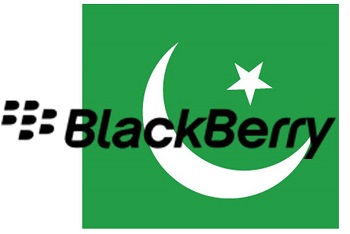Gartner has predicted that by 2018, about 50 percent of shoppers will use wearables or smartphones to pay for purchases.
Research firm, Gartner Inc., has released a recent prediction that wearable technology will play a tremendously larger role in mobile payments over the next few years, saying that half of all consumers will be using them or smartphones for that purpose by the close of 2018.
This forecast has come at a time in which mobile payments are still only just gaining initial adoption.
In markets such as Japan, North America and many countries throughout Western Europe, mobile payments remain a small but growing transaction technology. Gartner feels that by 2018, they will have become popular enough that fifty percent of consumers will be using their smartphones or wearable technology devices in order to complete transactions at checkout counters in retail stores and restaurants.
This also suggests that Gartner feels that wearable technology will also be growing in its popularity.
 According to Gartner principal research analyst, Amanda Sabia, “Innovation in apps, mobile devices and mobile services are impacting traditional business models, particularly in the way people use personal technology for productivity and pleasure.” Sabia also pointed out the importance that product managers come to understand who these shoppers actually are when it comes to catering to new devices and providing services, while discovering just how those gadgets are being used by those customers. “Knowing your customer is imperative in order to capture a fair share of spending opportunities in this dynamic marketplace.”
According to Gartner principal research analyst, Amanda Sabia, “Innovation in apps, mobile devices and mobile services are impacting traditional business models, particularly in the way people use personal technology for productivity and pleasure.” Sabia also pointed out the importance that product managers come to understand who these shoppers actually are when it comes to catering to new devices and providing services, while discovering just how those gadgets are being used by those customers. “Knowing your customer is imperative in order to capture a fair share of spending opportunities in this dynamic marketplace.”
There were three types of mobile payments that were described by Gartner within its recent report. It identified them as: wearables or smartphone based payments, branded mobile wallets from credit card issuers or banks, or branded mobile wallets from retailers.
Still, Gartner reported that those mobile payments services based on NFC technology – such as Android Pay, Apple Pay and Samsung Pay – will remain limited throughout the length of the forecast period simply because the partnerships between retailers and financial organizations for using smartphones and wearable technology in that way will not yet have been established. Moreover, consumers have yet to see the value in that type of payment transaction.
The Canadian handset manufacturer had said it would step out of the country before revealing its customer data.
BlackBerry has now announced that it will be continuing its operations in Pakistan after the government of that country agreed to withdraw its demands that would require the company to hand over access to all its customer data.
The smartphone maker had developed a plan to leave Pakistan if the government continued the requirement.
Chief operating officer of BlackBerry, Marty Beard, explained in a blog post that the Pakistani government had now taken back its previous order to shut down the company’s services after the company and the government were able to complete “productive discussions”. The shutdown order was originally issued by the Pakistani government back in July 2015 when it said that “security reasons” were behind its decision. A few months later, on November 30, BlackBerry announced its decision to leave the country because it was unwilling to provide access to private customer information to the government.
The Pakistani government had demanded a vast range of backdoor access to BlackBerry customer information.
 Among the information that the company would have been required to hand over included access to BBM chats and BlackBerry Enterprise Service (BES) emails. The smartphone manufacturer said this was “a compromise we are not willing to make.” The initial order from the government was that the company would have to shut down on November 30. However, that deadline was extended to December 30.
Among the information that the company would have been required to hand over included access to BBM chats and BlackBerry Enterprise Service (BES) emails. The smartphone manufacturer said this was “a compromise we are not willing to make.” The initial order from the government was that the company would have to shut down on November 30. However, that deadline was extended to December 30.
According to the company, there are up to 5,000 BES customers currently in Pakistan. It reported through Beard’s blog post that the authorities in Pakistan yielded to the resistance the company had placed against the demands for access to customer information and records. He wrote that “We are grateful to the Pakistan Telecommunication Authority and the Pakistani government for accepting BlackBerry’s position that we cannot provide the content of our customers’ BES traffic, nor will we provide access to our BES servers.”
BlackBerry has not always been as driven or successful in the face of requirements from other national governments for access to user data. For example, in 2013, it gave access to the Indian government. It was able to view emails, BBM chats and internet service customer browsing habits. Reportedly, the company has also established data sharing agreements with the United Arab Emirates, Saudi Arabia and Russia.
 According to Gartner principal research analyst, Amanda Sabia, “Innovation in apps, mobile devices and mobile services are impacting traditional business models, particularly in the way people use personal technology for productivity and pleasure.” Sabia also pointed out the importance that product managers come to understand who these shoppers actually are when it comes to catering to new devices and providing services, while discovering just how those gadgets are being used by those customers. “Knowing your customer is imperative in order to capture a fair share of spending opportunities in this dynamic marketplace.”
According to Gartner principal research analyst, Amanda Sabia, “Innovation in apps, mobile devices and mobile services are impacting traditional business models, particularly in the way people use personal technology for productivity and pleasure.” Sabia also pointed out the importance that product managers come to understand who these shoppers actually are when it comes to catering to new devices and providing services, while discovering just how those gadgets are being used by those customers. “Knowing your customer is imperative in order to capture a fair share of spending opportunities in this dynamic marketplace.”
 Among the information that the company would have been required to hand over included access to BBM chats and BlackBerry Enterprise Service (BES) emails. The
Among the information that the company would have been required to hand over included access to BBM chats and BlackBerry Enterprise Service (BES) emails. The 